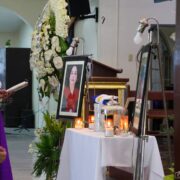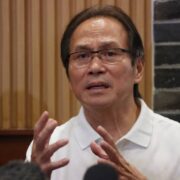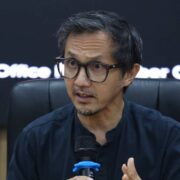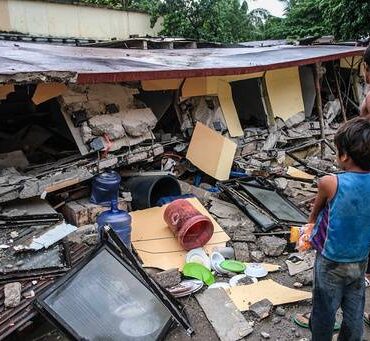Baguio bishop leads march vs corruption
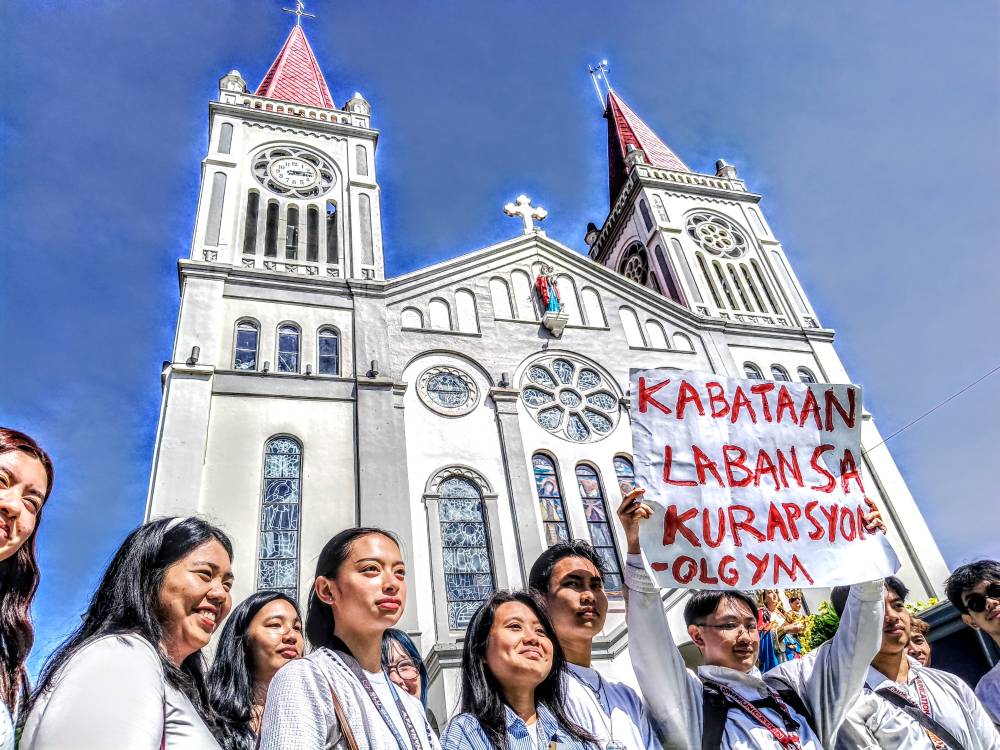
BAGUIO CITY—Baguio Bishop Rafael Cruz rallied at least 6,000 Catholics here to a prayer march on Tuesday in a bold stand against corruption—an event that brought parts of the summer capital to a standstill during the morning rush.
Nuns, priests, lay devotees, activists and students from nearly every school in the city—including the largest, Catholic-run Saint Louis University (SLU)—marched from the Baguio Convention Center to the Baguio Cathedral, triggering heavy congestion downtown and along Legarda Road and Marcos Highway.
Workers and passengers were forced to walk to the city center amid the gridlock. Priests lent a hand, managing traffic flow as best they could. Some students, stranded by gridlock, joked that they had no choice but to join the rally. Others muttered in frustration as they jogged to reach their workplaces.
But many motorists responded with supportive blasts of their horns—a gesture of solidarity with the Church’s crusade against corruption in government, which has drawn national attention after President Marcos questioned how a few contractors scored multibillion-peso flood control contracts.
By 9 a.m., SLU students were still making their way to the cathedral—nearly an hour after the march began—underscoring how many heeded Cruz’s call. Protesters carried handwritten signs on bond paper: “Integrity is doing right even when no one is watching.”
Other signs read, “I-posas ang mga corrupt” (cuff the corrupt). Some participants wore protest shirts previously worn on Sept. 21, the nationwide anticorruption rally and commemoration of the declaration of martial law in 1972. One shirt had the message, “Stop flooding us with corruption.”
Power of prayer
During the Mass, which coincided with the Oct. 7 Feast of Our Lady of the Holy Rosary, Bishop Cruz reflected on the power and purpose of prayer.
“While we marched we were praying the Holy Rosary,” Cruz said as he cautioned against prayers caused by vindictiveness.
“Prayer is not asking God to harm bad people—to have thieves and the greedy die or be struck with a severe illness that affects even their descendants up to the fifth generation … That is not prayer, and God will not heed such desires,” the prelate said.
Instead, Cruz urged a prayer that seeks transformation.
“What we pray for is that God enlightens the minds and hearts of the corrupt … so they realize what they have done and they repent,” he added.
The bishop also issued a stark assessment of corruption’s spiritual toll: “They may take the very treasury of the Philippines, but they lost the most relevant aspect of their individuality, which is their souls.”
Yet Cruz stressed that repentance does not erase accountability.
“I am not advocating that we forget their misdeeds, because the evil they have committed is so wide it has affected the whole country,” he said.
Cruz further decried how flawed infrastructure projects—especially flood control works that were poorly built or never properly executed—had cost lives and properties.
“People drowned in floods, were buried alive by landslides or lost property because of improperly constructed or ‘ghost’ flood control projects,” he said.
Other Church leaders in Leyte and Albay provinces also condemned widespread corruption in government infrastructure projects, particularly those meant for flood control.
The poor as victims
In a statement Monday, Fr. Chris Arthur Militante, spokesperson for the Archdiocese of Palo in Leyte, affirmed their support for the pastoral letter issued by the Catholic Bishops’ Conference of the Philippines (CBCP), which denounced corruption in public service.
“We are all one against corruption, and this message is not only addressed to our leaders but also to every citizen,” Militante said in an online interview on Monday.
Militante urged the faithful to channel their anger into responsible political action: “Hopefully, angered by corruption, we take the selection of our leaders more seriously in the future.”
In a separate message, Bishop Joel Baylon of the Diocese of Legazpi in Albay condemned what he described as systemic and blatant corruption in flood control spending.
“The price of corruption is paid by the poor,” Baylon said in his pastoral letter on Sunday. “Flaunting wealth acquired through public funds is a betrayal of the people and a violation of Gospel values.”
The bishop urged the faithful to begin renewal through personal responsibility and by choosing leaders who are committed to stewardship and truth. —WITH REPORTS FROM JOEY A. GABIETA AND MICHAEL B. JAUCIAN











